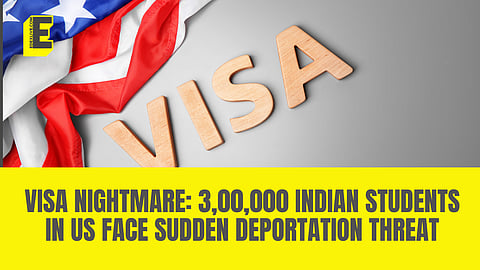

A proposed bill in the United States Congress threatens to eliminate the Optional Practical Training (OPT) programme, a crucial work authorisation pathway for international students that could leave over 3,00,000 Indian students in limbo, according to NDTV World.
The bill would dismantle the OPT programme, which currently allows international students, particularly those in Science, Technology, Engineering and Mathematics (STEM) fields, to gain practical work experience in the US for up to three years after graduation.
Indian students make up the largest group of OPT beneficiaries, with 97,556 participants in the 2023-2024 academic year, a striking 41% increase from the previous year.
If enacted, this legislation would force international students to depart from the US immediately after completing their degrees, derailing career plans and creating financial hardship for many who rely on postgraduation employment to repay substantial student loans.
The elimination of OPT could redirect talented Indian graduates to countries with more favorable post-study work options, such as Canada or European nations. This exodus would simultaneously impact the US job market, particularly in STEM sectors where international graduates help address critical skill shortages.
Current F-1 and M-1 visa holders are urgently seeking employment opportunities that could transition them to H-1B work visas, primarily sponsored by major US and Indian tech companies. However, with limited H-1B visas available annually, competition is fierce.
"OPT allows students to find jobs in the US for one year after graduation, with a possible two-year extension for STEM graduates working with qualified US employers," explains Poorvi Chothani, Founder of immigration law firm LawQuest, adding, "The bill's passage would eliminate this pathway, forcing immediate departure."
The situation has created significant anxiety, with many Indian students canceling summer travel plans over fears they may be denied re-entry. Elite institutions, including Cornell, Columbia, and Yale, have informally advised international students against traveling home during breaks.
This proposed legislation aligns with broader immigration restrictions under the Trump administration, which has prioritised deportations and stricter visa controls. US universities worry these policies could significantly reduce international enrollment, causing substantial economic impacts across American higher education.
